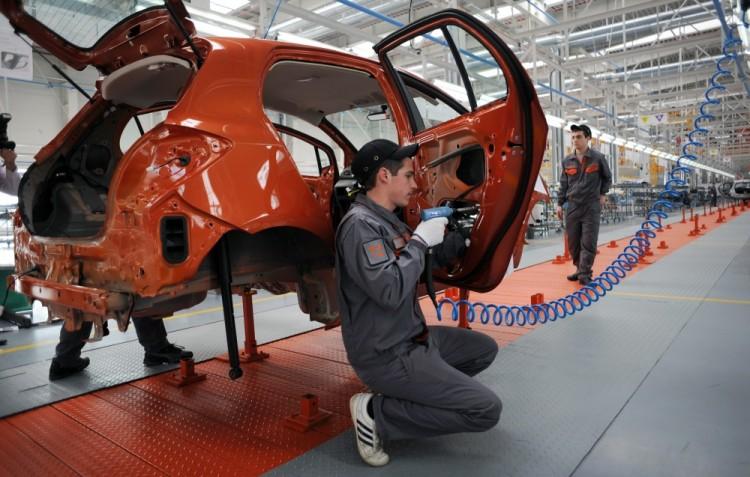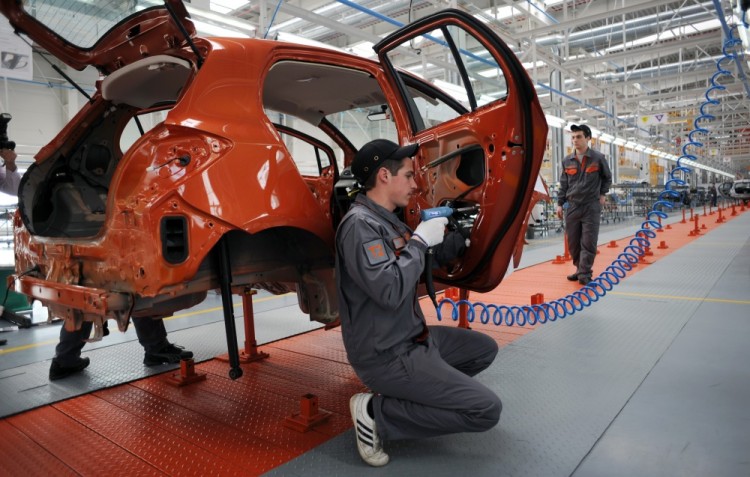Last month, a deal between China’s Great Wall Motors and Bulgaria’s Litex Motors was reached to allow China to assemble its first cars in the European Union.
Per the agreement, China will build its first plant in the Bulgarian village of Bahovista and start producing 2,000 cars in the first year. By 2015, the plan is to start producing 50,000 cars and employ 2,000 workers.
For China, this is a milestone to put its first foot in the EU and challenge European car producers such as Volkswagen AG, Daimler AG, Fiat S.p.A., and others. Having established a plant in the EU means zero tariff levels in selling its cars all over Europe. At first, the Chinese automaker plans to sell cars in Bulgaria alone and afterward, if successful, will try to expand throughout the EU and Turkey.
Great Wall will start producing the Voleex C10 city car, a larger Steed 5 pickup, and Hoover H5 SUV. Although the quality of those models may not be good compared to most of the German and French competitors that dominate the market in Bulgaria, the price of newly assembled Chinese models will be set at astonishing low levels—the Voleex C10 will start at 8,000 euros ($10,484.84), while Hoover H5 will be sold at 14,700 euros.
China Dealings
The business prospect is such that the deal could generate profits for Bulgaria in the short term. However, one should also look at the other side of the coin. Bulgaria was burdened by communism for a little more than four decades, and now enjoys democratic freedom for its people, but is still suffering from an economic downturn. A partnership with China means short-term relief of Bulgaria’s economic woes, but a long-term dependency on the Chinese Communist Party’s span of influence and control.
Even though Bulgarians have long rejected and denounced communism, its politicians are still shamelessly playing with fire and appeasing the Chinese Communist Party, closing lucrative deals and allowing Chinese officials to interfere with Bulgaria’s domestic policies.
For example, when the international performing arts company Shen Yun Performing Arts wanted to visit Bulgaria and perform at the state-owned National Palace of Culture, Bulgarian officials blocked the show from taking place without giving a reason. This was an unexplainable occurrence, as any world-renowned performance would usually be quite welcomed to perform in Bulgaria. In unofficial conversation with Bulgarian politicians who were involved in blocking the show, it was revealed that the Chinese Embassy in Sofia had been putting pressure on local officials to stop the show, which promotes authentic Chinese traditional arts and culture, something the Chinese Communist Party had sought to suppress since coming to power in 1949.
The timing of that incident and the subsequent car deal can’t be viewed as a coincidence. One can infer that for Bulgaria, the supposed short-term economic benefit of Chinese industrial aid was simply too tempting to pass up.
But in the long term, allowing China to enter into the EU market could be devastating for the EU and Bulgaria’s own auto industry. China’s ability to flood the market with cheaply made automobiles could drive regional automakers out of business in a race-to-the-bottom in terms of price and labor competition.
Besides Bulgaria, China has been very interested in EU affairs, even going as far as pitching its stake in European bailout funds. One may question why China would be interested in giving billions of euros to a bailout fund, which is mostly an EU issue? For example, most German citizens and politicians don’t want to see their tax money going to fringe economies such as Greece with little hope of being paid back. Obviously, China has factored in future gains in this, possibly to strengthen its economic influence over the EU.






